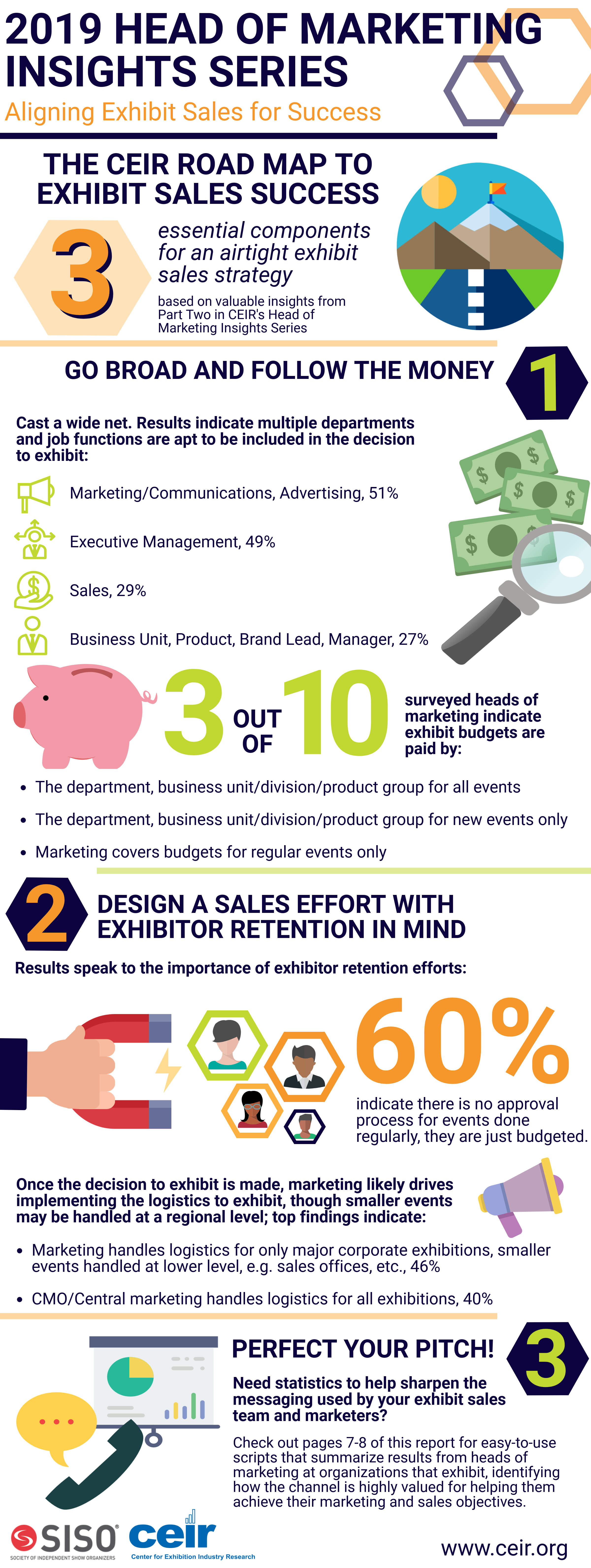New Report From CEIR Examines B2B Exhibitors’ Decision-Making Processes

The second in the Center for Exhibition Industry Research’s “Head of Marketing Insights” series, “Aligning Exhibit Sales for Success” takes a close look at the B2B exhibitor’s decision-making process, pinpointing the areas where marketing leaders see the most value in these exhibitions.
The report, which is based on survey data from marketing executives at North American organizations that use exhibiting as channel in their marketing mix, examines how brand marketers build an exhibit program. It also offers suggestions on how show organizers can position sales efforts to align with these practices.
"This short report evaluates who is apt to be involved in deciding to exhibit at an exhibition and how the decision-making process varies, contingent upon whether it is a new or repeat event," said Nancy Drapeau, CEIR’s vice president of research. "It includes powerful data [for example, the fact that 60 percent of respondents indicate there is no approval process for events done regularly] that makes the case of the value of using the face-to-face channel to achieve the most popular, important objectives for exhibiting."

The new report identifies:
- Who is involved in the process of identifying and approving at which B2B exhibitions to exhibit
- Which departments have budgeting responsibility for exhibiting
- Who handles the logistics and implementation of exhibit programs
- Statistics to use in selling the power of exhibitions, from the voice of heads of marketing at organizations that exhibit
"Understanding what heads of marketing think about the B2B exhibition channel is critical to the health and viability of the channel," said David Audrain, executive director of the Society of Independent Show Organizers (SISO), which sponsored the study.
“Aligning Exhibit Sales for Success” is the second in the Head of Marketing Insights Series. Parts three through five are coming soon.
- Part One: Overview of Marketing and Sales Approaches, Most Urgent Objectives, and Brand Image of the B2B Exhibition Channel to Support Needs
- Part Two: Aligning Exhibit Sales for Success
- Part Three: Overcoming Non-Exhibitor Objections
- Part Four: How B2B Exhibitions are Judged, Where It is Essential to Deliver Results
- Part Five: Future Plans for Use of the B2B Exhibition Channel
CEIR CEO Cathy Breden said that B2B exhibition organizers’ sales staff will benefit from the data.
"It can serve as the basis to discuss an event’s sales processes and brainstorm ideas on how to refine exhibit sales efforts to convert more prospects to first-time exhibitors,” Breden said. “It also speaks to the critical importance of following a game plan that aims to maximize exhibitor retention."
To purchase a copy of “Aligning Exhibit Sales for Success,” go here.


Add new comment